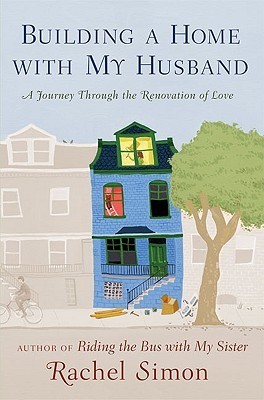
If It Was Easy, They'd Call the Whole Damn Thing a Honeymoon: Living with and Loving the TV-Addicted, Sex-Obsessed, Not-So-Handy Man You Married
Book Description
Love can be a wild ride, especially when your partner is stuck in the couch cushions, binge-watching their favorite shows! Jenna McCarthy unravels the hilarity and chaos of sharing life with a TV-addicted, DIY-inept spouse, revealing the charming quirks and eye-rolling frustrations that come with marriage. With sharp wit and relatable anecdotes, this book captures the rollercoaster of emotions in a world where remote controls reign supreme and romantic dinners often devolve into snack-fueled series marathons. Can love truly survive the relentless allure of endless TV seasons, or will it unravel in the face of unspooled reality?
Quick Book Summary
Jenna McCarthy’s book is a witty, honest, and unfiltered look at the realities of modern marriage. Focusing on her own experiences with a TV-addicted, sex-obsessed, and not-so-handy husband, she highlights the daily frustrations and comedic moments that anyone in a long-term partnership will recognize. Through anecdotes and sharp observations, McCarthy dives into the challenges of communication, managing unmet expectations, and finding humor in the chaos of shared domestic life. Her candid, irreverent tone turns ordinary marital struggles—think failed home improvement projects and marathon television sessions—into laugh-out-loud reflections on love’s durability. Ultimately, the book is a celebration of the resilience, compromise, and genuine affection that help couples weather the quirks and annoyances of marriage.
Summary of Key Ideas
Table of Contents
Navigating Marital Imperfections with Humor
Jenna McCarthy opens her memoir by inviting readers into the delightful madness of a marriage filled with mismatched quirks and habits. She acknowledges upfront that perfection is an illusion, and the reality of long-term relationships is far messier—and much funnier—than fairy tales admit. With self-deprecating humor, she shares the saga of life with a husband whose love of television frequently outpaces his enthusiasm for household fix-its or romantic gestures. This candid introduction sets the stage for a book that values authenticity over fantasy, and laughter over resentment.
Coping with Contrasting Habits and Interests
Throughout the book, McCarthy explores the everyday friction brought on by contrasting habits and interests. The author candidly describes her struggles to accept her husband’s obsessions—his inability to pass up a good binge session, questionable DIY attempts, and often single-minded approach to sex. She illustrates how such differences create both tension and comedy, and emphasizes the necessity of patience and empathy. Rather than offering solutions for changing one another, McCarthy encourages embracing the chaos, making peace with imperfection, and discovering strengths in unlikely places.
Surviving Everyday Annoyances and Miscommunication
Miscommunication and minor annoyances are recurring themes, and McCarthy skillfully mines humor from situations that might otherwise breed bitterness. Whether it’s the eternal battle for the remote, navigation of mundane responsibilities, or the small misunderstandings that snowball into larger arguments, she demonstrates the importance of not taking things too seriously. Her anecdotes inspire readers to laugh at themselves and their partners, acknowledging that everyone brings flaws and foibles to the table. By reframing irritation as comedic fodder, couples can transform disagreements into shared moments of levity.
The Role of Intimacy, Sex, and Affection
Intimacy and sex are addressed not with glossed-over romance, but with the realism that comes from years together. McCarthy acknowledges the ebbs and flows in desire and affection, the unglamorous negotiations that keep relationships ticking, and the persistence of attraction even amidst daily drudgery. She resists painting passion as effortless, instead revealing how honest communication, vulnerability, and a good sense of humor can rekindle closeness—even in the shadow of yet another TV marathon or failed home repair attempt.
Finding Joy and Resilience through Shared Laughter
In the conclusion, McCarthy underscores that the secret to surviving—and thriving—in marriage is the ability to find joy even when things feel ridiculous or exasperating. Through her collection of laugh-out-loud stories, she reassures readers that struggling doesn’t signal failure, but rather signals the normal, ongoing work of love and partnership. The book ends on a hopeful, uplifting note, celebrating resilience, adaptation, and the enduring power of laughter to bind couples through all of marriage’s ups and downs.
Download This Summary
Get a free PDF of this summary instantly — no email required.





